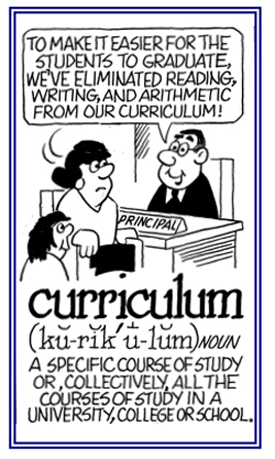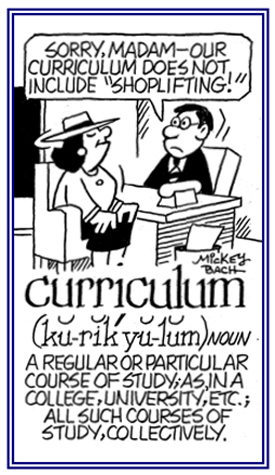curr-, cur-, cor-, cour-
(Latin: to run, running)
2. The state of being up-to-date: With her emphasis on currency, Sally always has the newest cell phone available.
3. General acceptance or use: Todd's radical political ideas have not been given much currency by university officials.
4. Etymology: from Latin currens, "condition of flowing"; from currere, "to run".
The sense of "flowing" or "course" was extended in 1699 by John Locke (1632-1704), an English philosopher who maintained that all knowledge is derived from sense-experiences; then to "circulation of money" with the meaning of in circulation as "a medium of exchange" and also followed by that of "money in circulation" in 1729, in Benjamin Franklln's Essays.
2. A flow of electricity: The lights flickered a lot last night because of the unsteady current during the storm.
3. A common movement or tendency in society: A current of popular belief often decides a presidential election.
2. The related courses particular to a field of study: It will be necessary for Betty to take and to pass seven of the eight courses in the anthropology curriculum.



Go to this Word A Day Revisited Index
so you can see more of Mickey Bach's cartoons.
Curriculum vitae is also called vita or vitae; a brief biographical résumé of a person's career and training, which is usually prepared by someone who is applying for a job or a professional career.
2. Etymology: from Latin, curriculum vitae, "the race of life"; from curriculum, "course" + vitae; from vita, "life".It is a mistake to deal with minor considerations before getting down to the central issue confronting anyone; as we are warned: "Don't put the cart before the horse (ox)." When planning an activity, we must keep first things first.
Aidan's sister cursorily did her homework to such an extent that she failed the biology test the next day.




